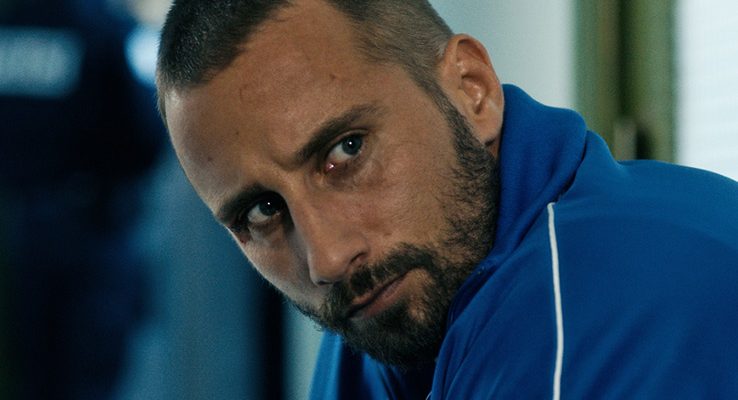A compact, effective, if low-key film that takes an interestingly counterintuitive approach to its blending of arthouse and genre elements, Alice Winocour‘s “Disorder” (which will be its title in the U.S. where its French name “Maryland” might suggest a light comedy involving rival crabcake recipes) is a small but polished find. Starring an entirely convincing Matthias Schoenaerts and a delicately understated Diane Kruger, the film moves in the opposite direction to many hybrids, starting out as a more formally adventurous exercise in empathy for a character suffering from a collection of symptoms that suggest Post Traumatic Stress Disorder, but switching gear in its second half to take on the form of a genre thriller. Perhaps surprisingly, while a certain amount of the nuance is lost or left unresolved by this shift, it perhaps is the stronger film in those latter home-invasion sections, where Winocour shows a very sure, swift hand for rhythm and tension building that would, in a just world, have Hollywood calling.
Vincent (Schoenaerts) is a French Special Forces soldier to whom we are introduced as he is undergoing, and apparently failing, a series of tests to determine his fitness for active duty after several tours in Afghanistan. In the limbo of his hiatus from the army (the film quietly critiques a military system that shatters psyches and then sends the broken remainders out into the world medicated but otherwise unsupported), Vincent has panic attacks, hears ringing noises, develops spasms, shakes and paranoia, which he tries to suppress with drugs and an effort of will that clearly costs him dearly.

In need of money, he accepts a job from a fellow soldier as hired private muscle for a swanky party being thrown in a mansion belonging to a Lebanese businessman, Whalid (Percy Kemp), who lives there with his wife Jessie (Diane Kruger) and young son Ali (Zaid Errougui-Demonsant). During the party, Vincent, who is starting to fray a little, overhears conversations that suggest the businessman is involved in something shady. But when his friend, acknowledging that Vincent is unlikely to be called back up any time soon, offers him the job of bodyguard and watchman to Jessie and Ali while Whalid travels to Europe on business for a couple of days, he accepts.
What is impressive is how well Winocour, who also wrote the script, establishes a gathering tension in Vincent, ably embodied by Schoenaerts, who supplies a moving, taciturn portrayal of a career soldier abandoned by the institution that defined him, and discovering that he cannot even rely on his own faculties not to betray him any more. So much so, that we start to believe that the chief danger to Jessie and Ali may in fact come from Vincent, in an act of overreaction to his escalating paranoia. But then the threat is suddenly externalized, and the film moves into its leaner, less impressionistic second half as Jessie, Ali and Vincent hole up in the mansion and prepare for a kind of siege.

Winocour shows herself adept at simply staged, fluid, comprehensible action sequences, such as an attempted kidnapping, as well as at the lethal cat-and-mouse hide-and-seek games played around the mansion later. And Kruger is quietly impressive too, not compromising Jessie’s moral ambiguity—she is married to a crook and profiting off his ill deeds, after all — while still managing to invest her character’s plight with emotional stakes. Mostly they exist in the gradually thawing relationship between her and Vincent, which displays chemistry despite, or maybe because of, how infrequently they look at each other directly. Their burgeoning closeness, a kind of kindred spirit communion despite social disparity, is never overplayed: a scene in which a laughing Jessie flirts openly with Vincent’s outgoing friend Denis (Paul Hamy) being a clever demonstration of human dynamics, and their mutual understanding coming across much more powerfully for being largely unspoken.
Really a two-hander overall, “Disorder” is part home-invasion film, part bodyguard romance and part PTSD drama that delivers solidly on the first two fronts and and partially on the third, and continues uninterrupted Schoenaerts’ recent impressive run of hunky but haunted performances, even if the porous plotting is nowhere near as accomplished as the craft or the acting. Perhaps its biggest question mark though, is in its dubious moral: according to how it all plays out, the best treatment for PTSD would appear to be a whole lot more trauma. [B]
Check out the rest of our coverage of the 2015 Cannes Film Festival by clicking here.





